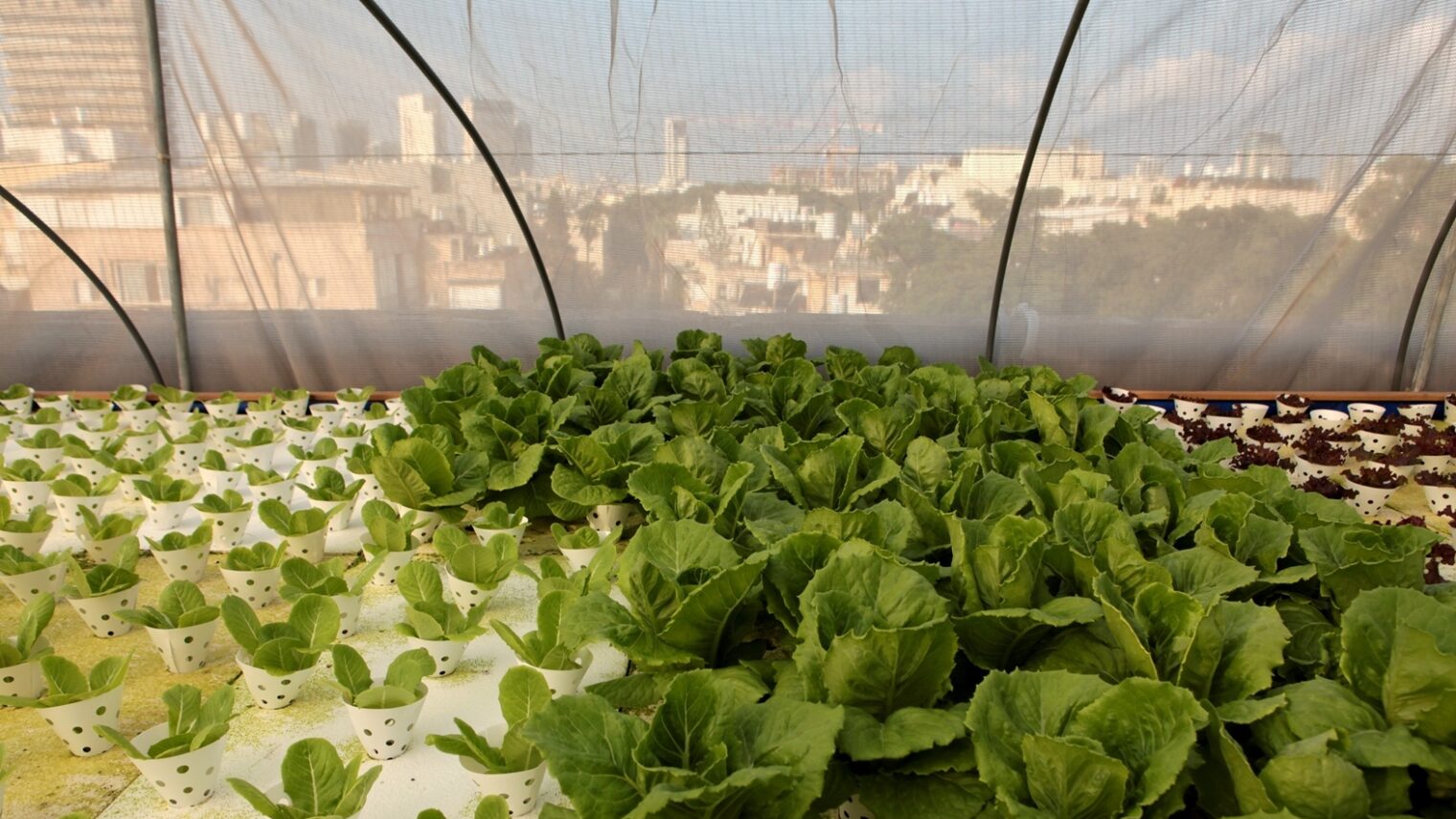The upper parking lot of the Dizengoff Center shopping mall in Tel Aviv is a concrete maze of cars. There is also a hothouse up here with the freshest green vegetables you’ve ever seen.
While gardening on the roof of an urban parking garage may seem absurd, Yarok Ba’ir (Green in the City) is serving city dwellers – and restaurants within a 2-kilometer radius — straight-from-the-farm veggies.
Green in the City is a joint venture between LivinGreen, a company that pioneers hydroponic and aquaponic solutions, and the Dizengoff Center, opened in the 1970s as Israel’s first shopping mall.
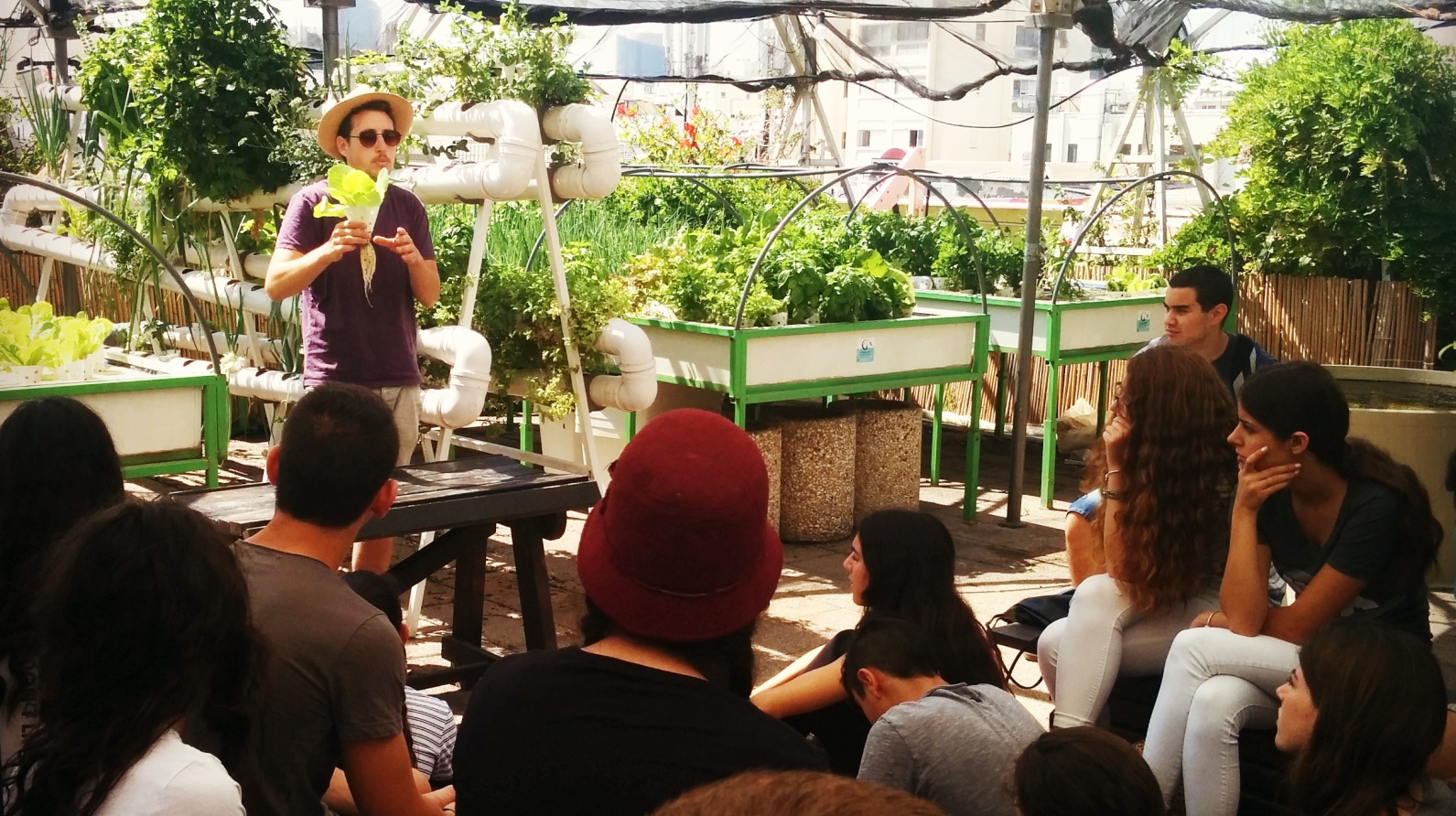
“The main goal of Green in the City is to bring agriculture to the middle of the city, to be able to grow food right in the heart of the city,” Yoav Sharon, co-manager of Green in the City, tells ISRAEL21C.
“People can come here and buy their products, so that trucks don’t have to come into the city to deliver products to restaurants. You see buildings, cars, pollution and then here’s a nice green garden in the middle.”
The first commercial farm in Tel Aviv consists of a hothouse and areas for workshops where local residents can learn how to build urban mini farms at home or school.
https://youtu.be/mbUv2ZIuKtI
The urban farm grows nearly two dozen varieties of veggies and herbs (among them lettuce, basil, tomatoes, mint, kale, cucumbers and green onions), producing some 15,000 heads of leafy greens each month.
Demand is so high that Green in the City now boasts three stands in the Dizengoff Center. All three operate on an honor system.
“There’s nobody at the stands to sell the vegetables. Everything is labeled. Customers pick what they want and deposit the right amount of money into the box,” he says, noting that Green in the City sells more than 1,500 products per week.
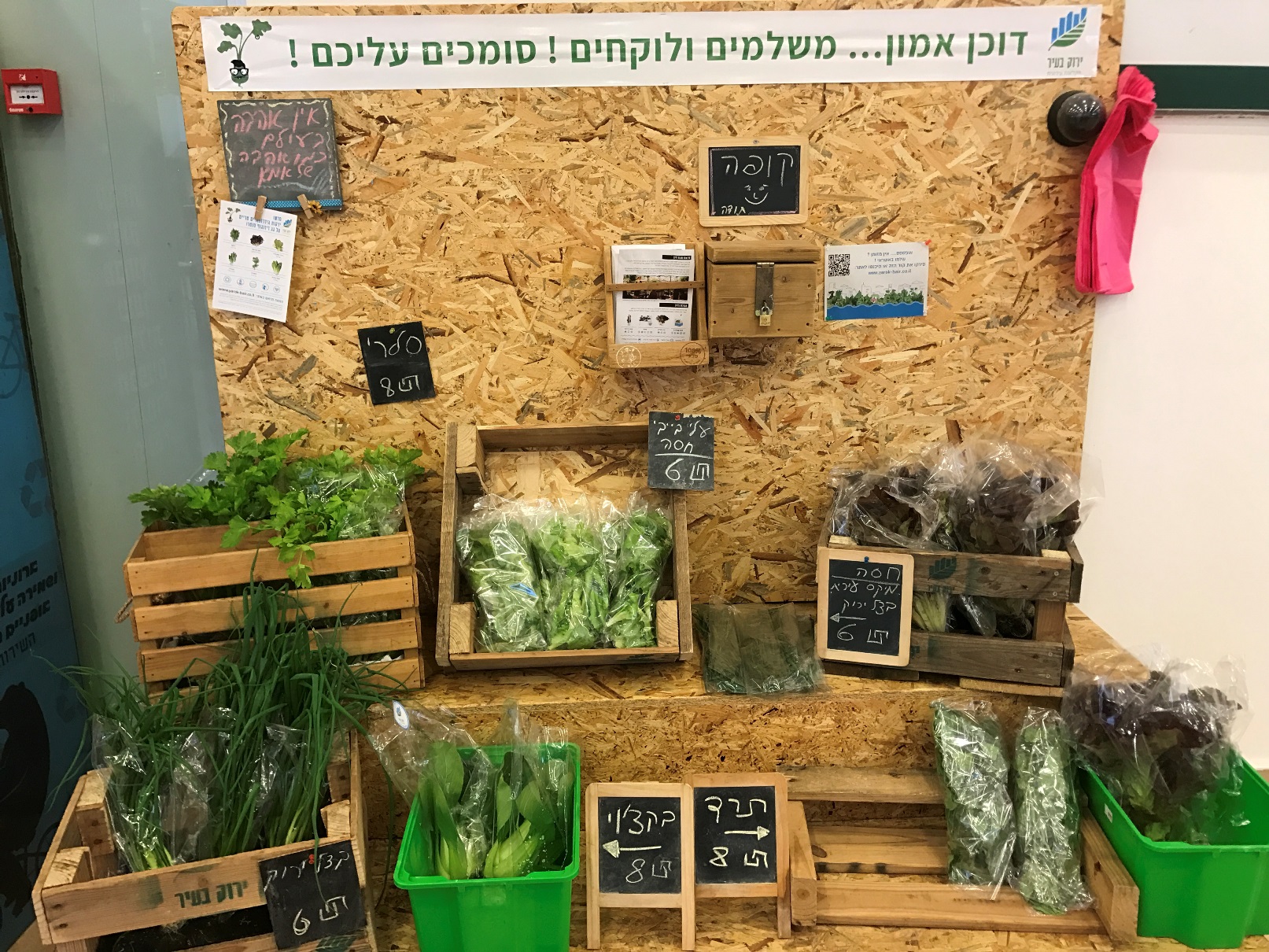
Food security
Green in the City launched in the winter of 2015 to demonstrate urban farming and to show that growing greens in a city is not only possible but viable.
Today, 54 percent of the world’s population lives in urban areas, according to the Food and Agriculture Organization of the United Nations. That number is expected to increase to 66% by 2050.
To feed the growing numbers of city-dwellers, urban farming is crucial. That’s why the hydroponics project in downtown Tel Aviv has garnered international interest.
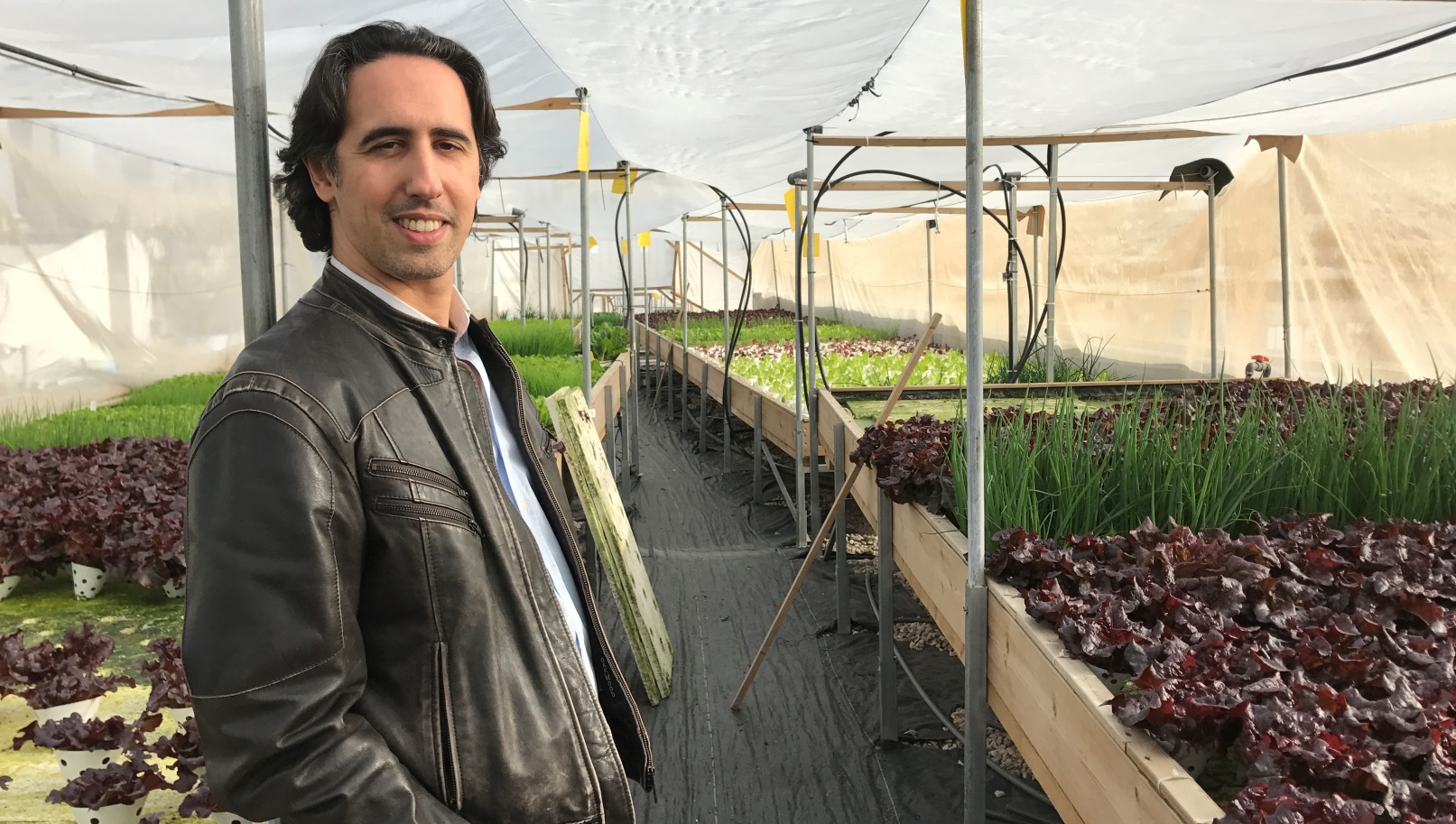
The UN reports that 800 million people worldwide grow vegetables or fruits or raise animals in cities, producing 15-20% of the world’s food. This trend can make an important contribution to food security, especially in times of crisis or food shortages.
LivinGreen, one of the partners in Green in the City, runs two aquaponics projects in collaboration with the UN’s Food and Agriculture Organization, in Ghana and Ethiopia.
Taste is fresh
Growing locally also means fresher veggies.
While air pollution in the city and in the parking facility under Green in the City can’t be good for the vegetables, Sharon says the mesh netting around the hothouse keeps most of the harmful pollutants at bay. He also notes that Green in the City has sent samples of its leafy greens to be checked in a lab.
Pesticides and other chemicals usually sprayed on rural farms, he notes, are absent from these greens. The vegetables are grown in beds filled with clean water, fertilizer and minerals. A fish aquaponics system cleans the water naturally.
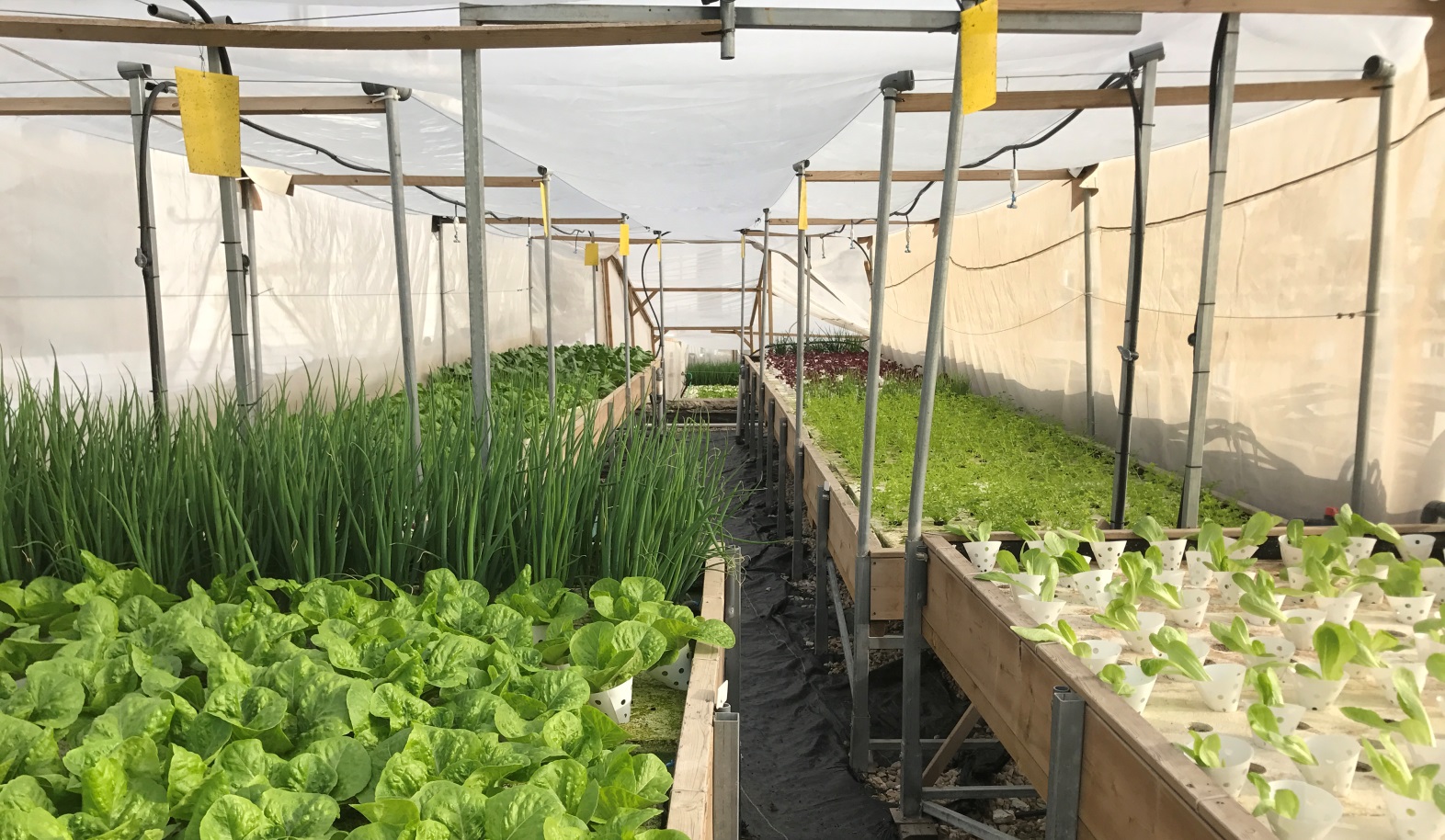
“There’s no need to clean these vegetables,” says Sharon. “There are no pesticides on it, there’s no dirt or soil. There are no worms on the vegetables. There are also fewer bad leaves. Compared to a soil-grown vegetable, where restaurants throw away 40-50% of the vegetable, here you only throw away 10-20%.”
Israel, known for its agriculture technologies, is strong in the hydroponics field.
Greening and growing Israel
Green in the City is one of many urban green spots blooming around Israel.
The Society of the Protection of Nature in Israel has an ongoing grassroots project that helps residents build and maintain community gardens. In the past 15 years, some 300 community gardens have been planted around the country on formerly barren patches of land.
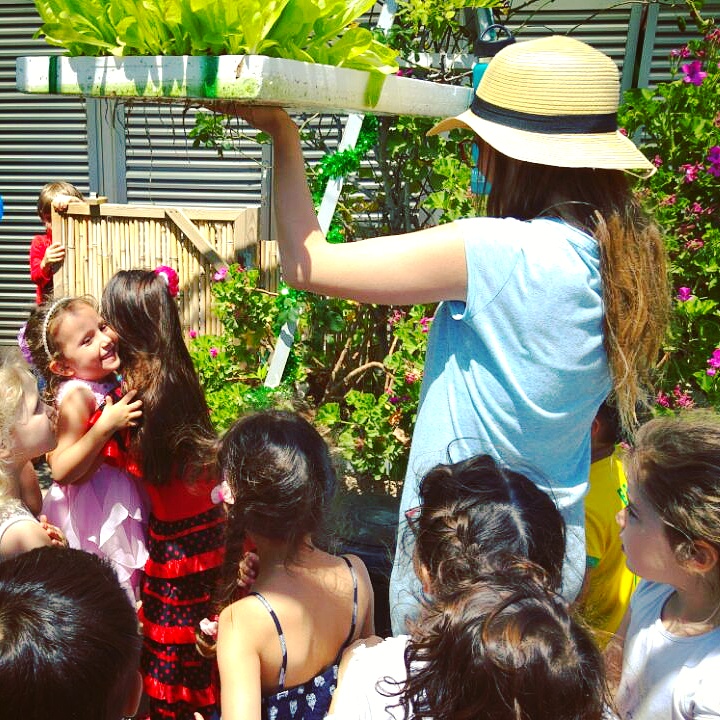
The Onya urban environment nursery of young eco-conscious visionaries grows greenery and offers urban gardening workshops in the concrete sprawl also known as the Tel Aviv New Bus Station.
At Totzeret Gimel-Urban Farm in one of Beersheva’s more neglected neighborhoods, farmers and volunteers grow seasonal vegetables to sell to neighbors and local restaurants. Totzeret Gimel also promotes a local and sustainable model of urban agriculture.
CityTree Tel Aviv and CityTree Haifa offer a slew of ecological-based programs including composting workshops and community garden outreach.
And the Muslala Arts Collective built its Gag Eden urban farm atop the Clal Building in downtown Jerusalem. Gag Eden hosts courses and workshops on container growing, green walls, hydroponics, the sustainable kitchen and medicinal herbs.




